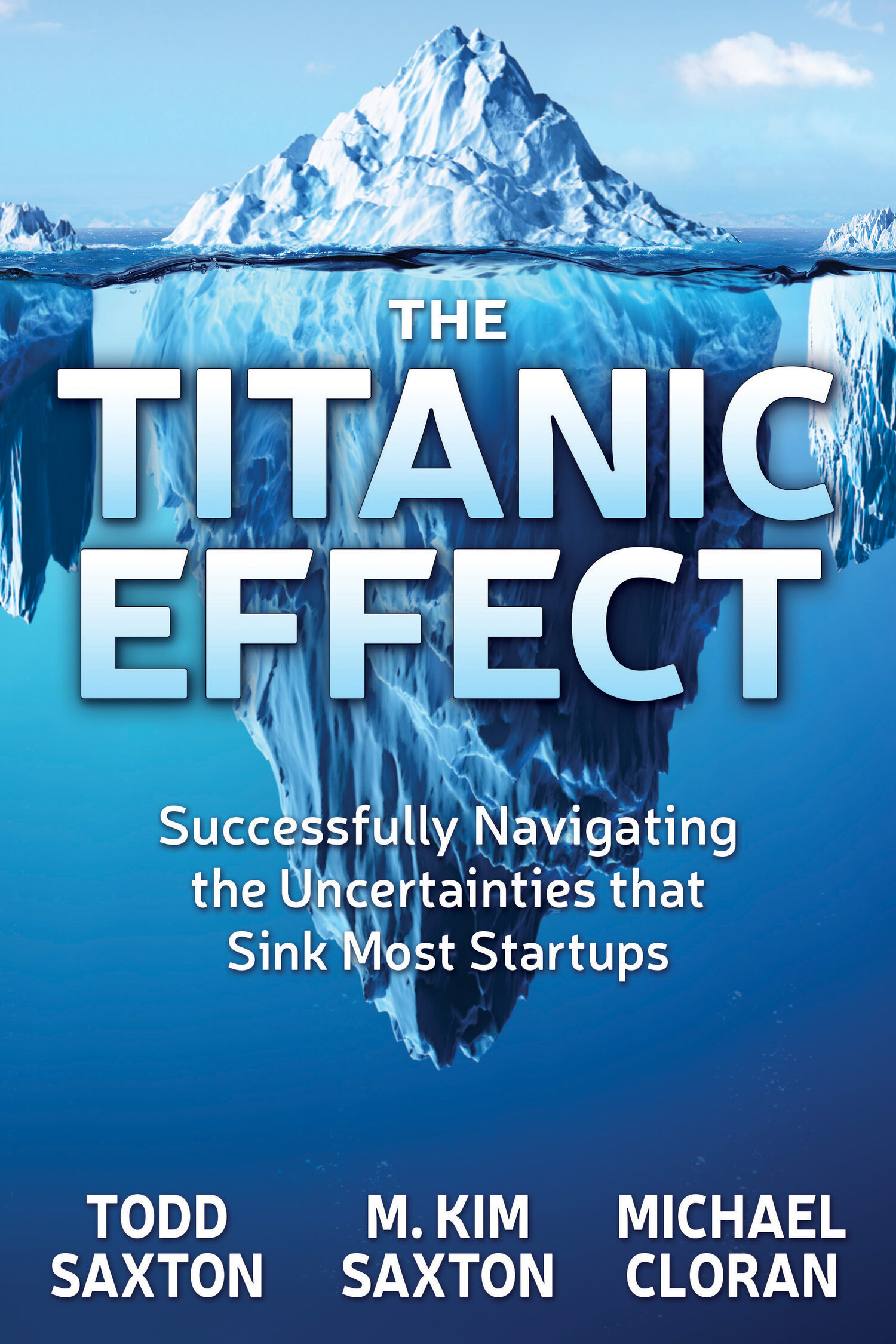Since The Titanic Effect: Successfully Navigating the Uncertainties that Sink Most Startups came out in June 2019, we’ve been fortunate to be a guest on a number of podcasts. If you’re interested in listening to these conversations, all of the links are on the Podcast page of the website. One thing that each podcaster does is look for sound bites in the discussion. These sound bites can become hooks in social media posts. They are a hook because there is truth that rings out through them. They are also little secrets, that “those in the know” only share occasionally with others. So we thought we’d share a few of these secrets with all of you.
1. Riches in the Niches – Whenever we say one of the biggest mistakes startups make in the beginning is being too broadly focused, the podcaster invariably spits out, “There’s riches in the niches.” While these two ideas are related, they are not exactly the same. To be funded, startups need to have a large market opportunity. But they simply do not have the dollars or people to establish themselves in a large market. Instead, they need to find a beachhead customer segment where they can gain a foothold. Over time, they can expand from this beachhead. An alternative approach is to look for small customer segments or niches that have very specific needs. These niches will usually offer higher profits because of their specific needs. To do that means offering a very specific and differentiated product, one that other customers are not likely to be interested in. But it can be difficult to stitch together multiple niches to show the kind of market opportunity that investors want to fund. So, startups have to make a choice to either exploit smaller niches with higher profits or find a narrowly focused segment from which it can expand.
2. You have to have PEP – This idea comes right out of the book. The best founders and founding teams have PEP:Passion, Experience AND Persistence. Being a founder is hard. Most days, you get more bad news than good. Many talk about the “grind” or hustle of getting their startup off the ground. If they do not have all three of these ingredients, they simply will not make it. And experience can gleaned from many places – from trying to solve the problem already, time in the industry, and/or previous startups.
3. We are All Startups Now – This was an “aha” moment with Jeffrey Shaw on the Creative Warriors podcast. Startups live in uncertainty. And ,these are uncertain times. That means that all companies need to think like startups and re-examine their product/market fit. How do customers want you to add value? How do customers want to interact with you? We are working toward a new normal. Even larger and established companies need to explore what the new normal for their customers is and be prepared as the new normal shifts.
4. The Two-Coffee Rule – This idea popped up on one of the podcasts when we were being asked how we decide which startups to invest in or advise. We have a “two-coffee rule.” We are happy to sit down with a founder and hear what they are up to. Then, we can set up a second coffee. But in that second coffee, we want to hear what they’ve done with the ideas we gave them the last time. We want to see how they are listening and figuring out product/market fit. How that second coffee goes will determine if we move forward with helping them in the future.
5. Practice your Pitch on your Least Likely Prospects First – Every founder and most business professionals have to spend some of their time selling. Most of us kind of dread the pitching process, so we procrastinate. By the time we have to actually start pitching, we try to be very efficient. We figure we should go after the hottest or most likely prospects first. They’ve already shown interest. It will probably take less time to close them. Wrong, wrong, wrong. You have to do the work to home in your pitch. That means you want to start with the least likely prospects first. You cannot afford to burn your best opportunities when you are still figuring out how to refine your pitch. Always save the best for last.
6. Shove an Elephant through a Crack – We heard this for the first time when we were talking with Matt and Matt at the Startup Hustle. Finding product/market fit is a tough challenge for most startups. Some people suggest the average amount of time it takes is four and a half years. In that time, the startup is experimenting by trying to find the right target segment, revising and revamping the product, and even realigning the message between the product and market. The better startups use a stepwise experimental approach with a series of small pivots, ala the lean startup approach. What that means is that sometimes one of the experiments works – you see an opening to the opportunity…a crack. Now you have to quickly see if you can “shove an elephant through that crack” to establish a firm foothold. That is the kind of agility startups must have -exploit an opportunity as soon as you see it.
Hope you find these six startup secrets helpful. Make sure you give one of these podcasts a listen and share your insights in the comments below. While systematically navigating uncertainty is the essential task of a startup founder, no one said you have to do it all by yourself. Glean tips from others to make your trip into the unknown a little less bumpy.


